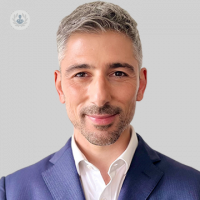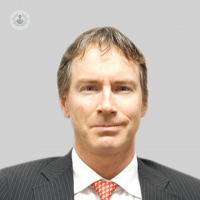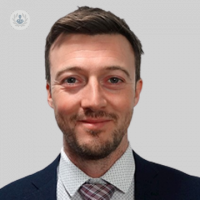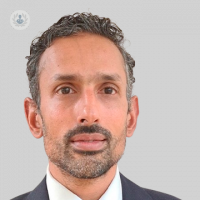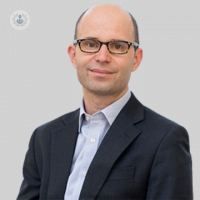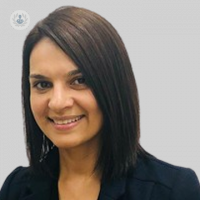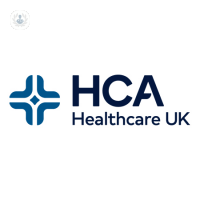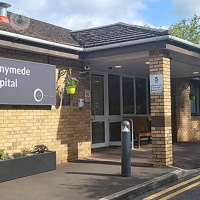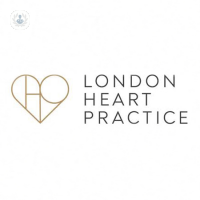What is a defibrillator and when should it be used?
A defibrillator is a device that helps the body regain a heart beat. It is typically used when an individual is suffering from a cardiac arrest, or in other medical terms, life-threatening arrhythmia. This dangerous irregular beating of one's heart is, in medical terms, referred to as ventricular fibrillation.
A defribillator should always, where possible, be used on an individual who is unresponsive and not breathing as they normally should.

How does a defibrillator work?
A defibrillator device provides an extremely high-energy electrical shock to the patient's rapidly beating heart. This shock then restarts the heart and thus allows the heart to regain its normal beating rhythm once again.
Who can use a defibrillator?
No training is required for the use of a defibrillator, so anyone can use it in a situation where it is deemed necessary. Clear instructions are displayed on the AED device if one is found in public, as well as a phone that links to the emergency services that can guide you if necessary. A defibrillator being used in a hospital in the urgent care must be used by a specialist trained in its use.
How effective are defibrillators when it comes to saving someone's life?
If a defibrillator is used within three minutes of a sudden cardiac arrest (SCA), the patient will have up to a 70 per cent improved chance of surviving, and a 90 per cent chance of survival when the defibrillator is used within one minute of the sudden cardiac arrest.
Where are defibrillators usually found? Are they easily accessible?
Fortunately, Public Access Defibrillators (PAD), otherwise called Automatic External Defibrillators (AED) are very accessible. They are usually located in workplaces and various public areas including airports, shopping centres, and train/bus stations, and are often located in old telephone boxes..
07-23-2013 09-29-2023Defibrillator
Dr Charis Costopoulos - Cardiology
Created on: 07-23-2013
Updated on: 09-29-2023
Edited by: Jay Staniland
What is a defibrillator and when should it be used?
A defibrillator is a device that helps the body regain a heart beat. It is typically used when an individual is suffering from a cardiac arrest, or in other medical terms, life-threatening arrhythmia. This dangerous irregular beating of one's heart is, in medical terms, referred to as ventricular fibrillation.
A defribillator should always, where possible, be used on an individual who is unresponsive and not breathing as they normally should.

How does a defibrillator work?
A defibrillator device provides an extremely high-energy electrical shock to the patient's rapidly beating heart. This shock then restarts the heart and thus allows the heart to regain its normal beating rhythm once again.
Who can use a defibrillator?
No training is required for the use of a defibrillator, so anyone can use it in a situation where it is deemed necessary. Clear instructions are displayed on the AED device if one is found in public, as well as a phone that links to the emergency services that can guide you if necessary. A defibrillator being used in a hospital in the urgent care must be used by a specialist trained in its use.
How effective are defibrillators when it comes to saving someone's life?
If a defibrillator is used within three minutes of a sudden cardiac arrest (SCA), the patient will have up to a 70 per cent improved chance of surviving, and a 90 per cent chance of survival when the defibrillator is used within one minute of the sudden cardiac arrest.
Where are defibrillators usually found? Are they easily accessible?
Fortunately, Public Access Defibrillators (PAD), otherwise called Automatic External Defibrillators (AED) are very accessible. They are usually located in workplaces and various public areas including airports, shopping centres, and train/bus stations, and are often located in old telephone boxes..
Experts in Defibrillator
-
Professor Mark Gallagher
CardiologyExpert in:
- Atrial fibrillation ablation
- Arrhythmia
- Cardiac resynchronisation therapy
- Defibrillator
- Cardiovascular disease
- Cardiac arrest
-
Dr Ben Mercer
CardiologyExpert in:
- Atrial Fibrillation
- Supraventricular tachycardia
- Arrhythmia
- Pacemaker
- Defibrillator
- Cardiac (catheter) ablation
-
Dr Anoop Shetty
CardiologyExpert in:
- Arrhythmia
- Defibrillator
- Palpitations
- Syncope
- Atrial fibrillation ablation
-
Dr Zachary Whinnett
CardiologyExpert in:
- Atrial Fibrillation
- Pacemaker
- Defibrillator
- Electrophysiology study
- Cardiac (catheter) ablation
- Arrhythmia
-
Dr Shahnaz Jamil-Copley
CardiologyExpert in:
- Arrhythmia
- Syncope
- Atrial Fibrillation
- Pacemaker
- Defibrillator
- Supraventricular tachycardia
- See all

London Bridge Hospital - part of HCA Healthcare
London Bridge Hospital - part of HCA Healthcare
27 Tooley St
No existe teléfono en el centro.
By using the telephone number provided by TOP DOCTORS, you automatically agree to let us use your phone number for statistical and commercial purposes. For further information, read our Privacy Policy
Top Doctors

The Runnymede Hospital - part of Circle Health Group
The Runnymede Hospital - part of Circle Health Group
Guildford Street, Ottershaw, Lyne, Chertsey KT16 0RQ
No existe teléfono en el centro.
By using the telephone number provided by TOP DOCTORS, you automatically agree to let us use your phone number for statistical and commercial purposes. For further information, read our Privacy Policy
Top Doctors

London Heart Practice (HCA)
London Heart Practice (HCA)
78 Harley St, London W1G 7HJ, United Kingdom
No existe teléfono en el centro.
By using the telephone number provided by TOP DOCTORS, you automatically agree to let us use your phone number for statistical and commercial purposes. For further information, read our Privacy Policy
Top Doctors
-
London Bridge Hospital - part of HCA Healthcare
27 Tooley St, Central LondonExpert in:
- 24-hour service
- Cardiology
- Minimal access surgery (keyhole surgery)
- Orthopaedic surgery
- Cardiovascular disease
- Gastroenterology
-
The Runnymede Hospital - part of Circle Health Group
Guildford Street, Ottershaw, Lyne, Chertsey KT16 0RQ, ChertseyExpert in:
- Cardiology
- Hand surgery
- General Surgery
- Maxillofacial Surgery
- Oral surgery
- Orthopaedic surgery
-
London Heart Practice (HCA)
78 Harley St, London W1G 7HJ, United Kingdom, Central LondonExpert in:
- Cardiology
- Preventive cardiology
- Chest pain
- Cardiovascular disease
- Palpitations
- Coronary CT
- See all
- Most viewed diseases, medical tests, and treatments
- Electrophysiology study
- Genetic testing
- Anxiety
- Long Covid
- Medicolegal
- Robotic surgery
- Hypertension (high blood pressure)
- MRI
- Fatty liver
- Cholesterol
